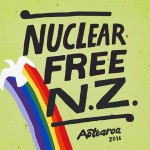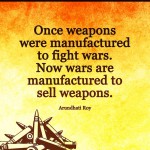The Armed Forced.
New Zealand will be a neutral non aligned country. 
The army’s primary duty shall be civil defence assisting in NZ and overseas.
The navy’s primary duty shall be protection of our fisheries and borders.
The air force’s primary duty will be to assist in disaster relief work in NZ and overseas.
Military forces shall always be subordinate to the civil government and always act in accord with the constitution, and in no case act independently of the civil government.
Military Forces shall not be deployed overseas except to assist in relief efforts.
(Please note – Costa Rica just abolished the military There have been no insurrections since. The monies spent on the military was dedicated to education, medical system and culture. As a result, the education system is excellent and the literacy rate is higher than the USA. The medical system is ranked by the WHO as better than the USA. And the people of Costa Rica are one of the happiest nations in the world.)
New Zealand’s role as a peacemaker nation. 
– A speech given by Lisa Er for the 30th Anniversary
of Nuclear Free Peacemaker New Zealand 6.5.2017
In June 1987 Aotearoa/New Zealand became the first Western-allied state to adopt legislation banning nuclear-armed and powered warships from its territory.
From then we saw a radical change in New Zealand’s security policy, in particular to reduce its reliance on traditional alliance relationships and to increase its emphasis on multilateralism, the United Nations, international law, peacemaking, peacekeeping and – embracing human security and the environment – in the Pacific region. We know the intelligence alliance was strengthened in the background and the deep state ties were most likely made secure so the surface was different to the hidden.
I now wonder if some have forgotten, or not heard of the importance of those various measures. We now seem to be supporting Western alliances that could take us into other people’s wars.
However New Zealand has stood strong on the anti nuclear issue. Except it won’t now critque the US.
The humanitarian consequences of nuclear weapons on civilian populations, was examined by 127 governments who acknowledged that the use of nuclear weapons would cause unacceptable devastation to human health, the environment, and economies. Millions would die from the initial blast, raging fires, radiation diseases, despair and finally famine, as the soot would block out sunlight preventing growth of plants and animals for food. It would have a similar effect as the asteroid or meteor that was supposed to have wiped out the dinosaurs 65 million years ago.
It was demonstrated that there could be no adequate international medical or humanitarian aid response, as had been stated by the Red Cross/Red Crescent Movement. Yet not many countries have stood up and become nuclear free.
New Zealand acknowledges the unspeakable suffering that would be inflicted by use of nuclear weapons, and the realisation of the collective responsibility to act urgently to prevent use of nuclear weapons.
The Mission now is to develop NZ’s role as a valuable player on the international stage to achieve abolition of nuclear weapons, based on our 30 year track record of success as a Nuclear Weapon Free Zone
We need to call on all countries to participate in good faith in the new diplomatic opportunities for the achievement of a nuclear weapons free world.
So what in New Zealand can do for peace?
Norway is currently the world’s biggest contributor to conflict resolution.
A high point came in 1993, when Norwegian diplomats and researchers got Israelis and Palestinians to negotiate face to face. The resulting Oslo accords were signed in Washington by politicians from America, Russia, Israel and Palestine.
Norway was more than happy for them to take the credit for its initiative.
Since then Norway has sought to involve itself constructively in many other conflicts.
It is time New Zealand joined Norway in this role.
Norway is a generous funder of a huge number of good causes. It has, for instance, given more to alleviate hunger in the Horn of Africa last year than France or Germany for example. It has set up a mechanism to pay Brazil not to chop down the Amazon.
It is time NZ developed a foreign policy of peacemaking, with some focus on diplomacy, humanitarian aid, refugee support, and peace-building programmes to facilitate employment and economic infrastructure.
When it comes to helping out the victims of war – refugees – our government says it can only afford $25 million a year for an extra 250 refugees, a rather miserable amount especially when we consider that in Afghanistan, and even Iraq, we may have contributed to some of these people’s distress. We went to support the US on false pretences – we are complicit!
Can New Zealand become non aligned?
Can we as a small educated nation control our own destiny and become more independent, and not be dragged into the military industrial complexes, war games – based on planetary control by the corporate elite?
CAFCA, (Campaign Against Foreign Control of Aotearoa) has launched AIM (Aotearoa Independence Movement). Initiator Murray Horton is gathering people together to support New Zealand’s non alignment with big brother and the US umbrella.
We must declare that we no longer support the waging of war! We must withdraw from any alliance with nations that continue to maintain offensive military postures. The US is sadly the most offensive and aggressive nation on Earth – it is morally contemptible that we remain aligned with them in both military and intelligence gathering.
So regarding AIM – watch this space!
– We need to build understandings of peace and conflict grounded in the experiences of people, places and history, and in ways that respect customary and local requirements for sovereignty, development, legitimate governance and wellbeing.
The National Centre for Peace and Conflict Studies is New Zealand’s first Centre to combine global cross-disciplinary expertise on the issues of development, peace-building and conflict transformation. The Centre was established in 2009 at the University of Otago, within the Division of Humanities. It has a world class reputation in its field, and is ably led by long term peace worker, Professor Kevin Clements.
There they look at the many causes of armed conflicts.
Undoubtedly the industrial military machine will be behind all wars, making money from conflicts that already exist, even exacerbating or creating them.
As Arundhati Roy said
“Once weapons were manufactured to fight wars. Now wars are manufactured sell weapons.”
The National Centre for Peace and Conflict Studies advances the understanding and knowledge of conflict resolution processes by conducting state-of-the-art training in negotiation, mediation, and cross-cultural conflict resolution.
Government needs to listen to their advice and suggestions, so to make New Zealand into a peacemaker peace building country that is non-aligned and is available to mediate in world conflicts, particularly conflicts in the Pacific and countries close to home.
I believe that it is now our job to encourage the government to do this.
Back to Policy page
